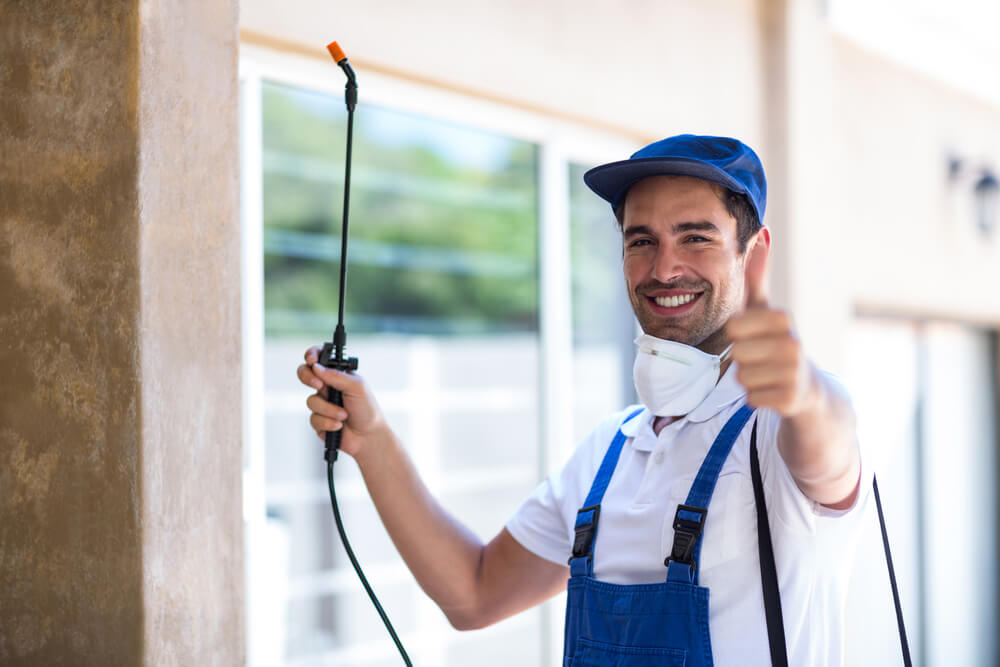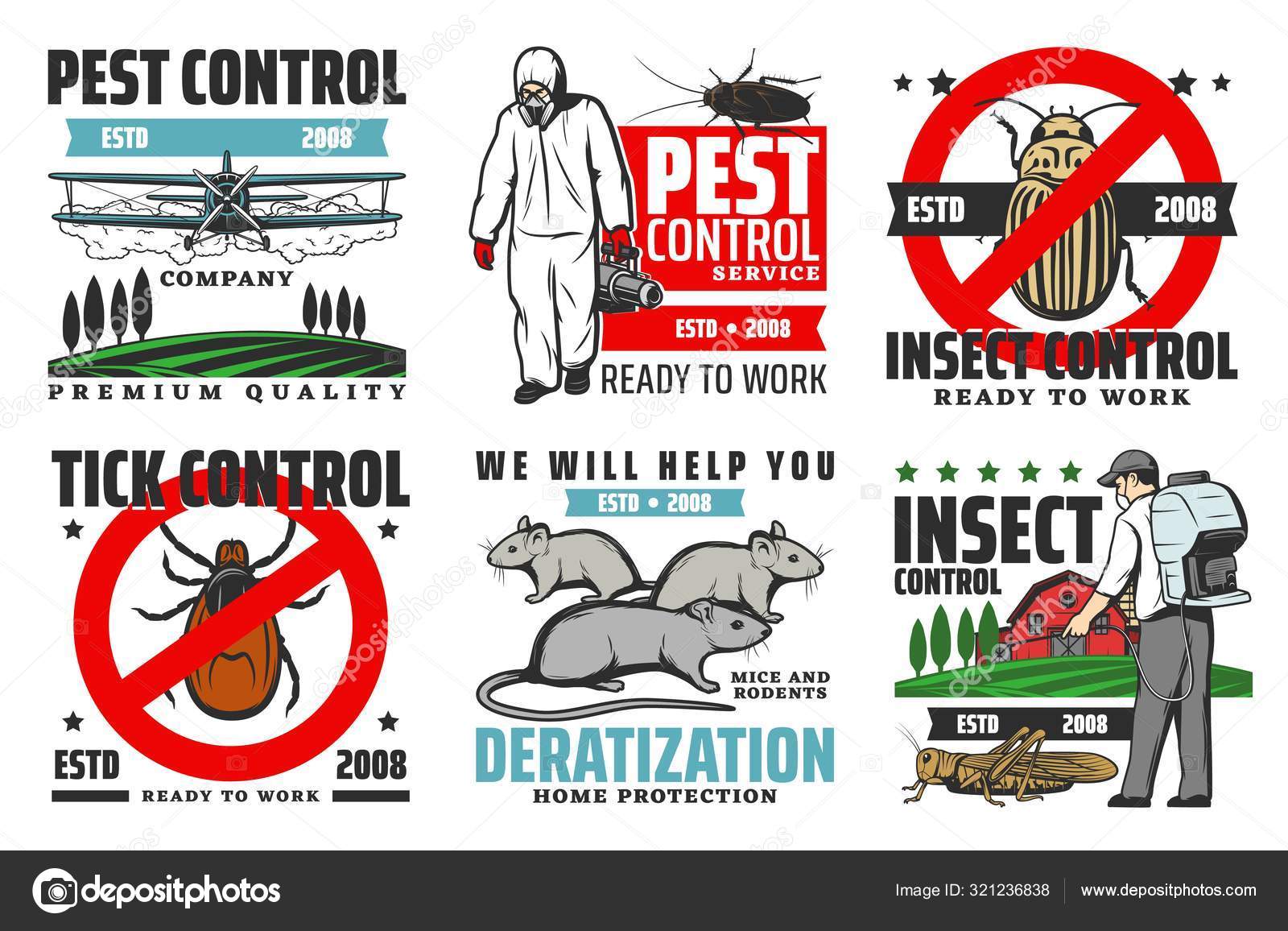Recognizing the Different Methods to Pest Control: A Comprehensive Overview

All-natural Bug Control Approaches
Using environmentally friendly strategies such as companion planting and biological insect control is crucial for properly taking care of insects in agricultural settings. Companion planting involves growing different plants in closeness to hinder parasites, improve nutrient uptake, and boost total plant health and wellness.
Biological parasite control includes introducing all-natural predators or pathogens to regulate pest populations. Ladybugs, for example, eat aphids, controlling their numbers without the demand for chemical pesticides. An additional instance is making use of Bacillus thuringiensis (Bt), a bacterium that targets certain insect bugs while being safe to people, pets, and valuable bugs.
These eco-friendly techniques not only minimize the reliance on artificial chemicals however additionally assist maintain biodiversity and soil wellness. By incorporating all-natural insect control approaches into agricultural techniques, farmers can achieve sustainable pest administration while reducing negative influences on the setting.

Chemical Parasite Control Solutions
In enhancement to all-natural insect control techniques, the use of chemical parasite control remedies plays a considerable role in successfully managing pest populaces in farming settings. Chemical insect control options are created to target details insects that may trigger substantial damage to plants. These options often include artificial chemicals that are designed to eradicate parasites quickly and efficiently.
One of the essential advantages of chemical parasite control services is their efficiency in regulating parasite invasions widespread. Farmers can use these remedies making use of numerous approaches such as splashing, airing out, or seed therapy to shield their plants from unsafe pests, weeds, and conditions. In addition, chemical parasite control remedies are reasonably simple to use and can supply fast results, helping farmers safeguard their yields and decrease financial losses.
Nevertheless, it is necessary to utilize chemical insect control solutions deliberately to decrease prospective negative impacts on the environment, non-target microorganisms, and human health and wellness. Proper application techniques, adherence to safety and security standards, and normal tracking are essential to ensure the accountable usage of chemical insect control solutions in farming techniques.
Biological Pest Control Approaches
Biological bug control approaches utilize natural killers or pathogens to handle bug populaces in agricultural settings successfully. One usual organic control approach is the introduction of natural opponents, such as ladybugs or parasitic wasps, to target certain parasites.
One more biological control method entails using microorganisms like infections, microorganisms, or fungis to infect and kill parasites. On the whole, organic bug control strategies supply a sustainable and targeted service to pest monitoring in farming.
Integrated Insect Management (IPM)
Integrated read this Pest Monitoring (IPM) is a detailed approach that incorporates various parasite control techniques to efficiently take care of and lessen pest populations in farming systems. IPM concentrates on lasting prevention of parasites with a mix of biological, social, physical, and chemical control approaches. By integrating these various approaches, IPM aims to lower reliance on chemical pesticides, lessen ecological impact, and promote lasting pest administration techniques.
One key element of IPM is using biological controls such as natural predators, bloodsuckers, and pathogens to regulate bug populaces. This method takes advantage of the power of nature to maintain a balance between parasites and their all-natural opponents without causing injury to the environment.
In addition, IPM includes social techniques like crop turning, sanitation, and habitat manipulation to create unfavorable conditions for insects and disrupt their life cycles. Physical controls such as mulches, catches, and obstacles are likewise made use of to avoid pest infestations.
Physical and mechanical Bug Control Methods
Using non-chemical techniques, such as physical and mechanical parasite control techniques, is a crucial element of thorough pest monitoring strategies, building upon the foundation of Integrated Parasite Monitoring's all natural technique. Mechanical insect control includes the use of physical obstacles or catches to stop bugs from accessing and damaging crops or structures. This approach can consist of techniques like installing displays on home windows, using row covers in agriculture, or using sticky traps to catch insects.
Physical parasite control approaches, on the other hand, concentrate on straight getting rid of insects through physical means. For circumstances, making use of warm treatments to eradicate bed pests or vacuuming up parasites like ants or spiders can be Look At This reliable methods to manage problems without using chemicals. By including these mechanical and physical pest control strategies into an Integrated Pest Monitoring plan, experts and individuals can lower dependence on chemicals while still efficiently managing pest populaces and reducing damages.
Final Thought

In enhancement to all-natural insect control methods, the utilization of chemical parasite control options plays a considerable role in properly taking care of pest populations in farming atmospheres.One of the essential advantages of chemical parasite control options is their efficiency in regulating bug infestations on a huge range.Integrated Insect Monitoring (IPM) is a detailed method that combines different insect control strategies to properly take care of and reduce pest populaces in agricultural systems.Making use of non-chemical techniques, such as mechanical and physical parasite control methods, is a vital element of comprehensive bug administration strategies, developing upon the structure of Integrated Insect internet Monitoring's alternative method. By including these physical and mechanical insect control techniques right into an Integrated Insect Management strategy, individuals and specialists can decrease dependence on pesticides while still properly lessening and handling pest populations damage.